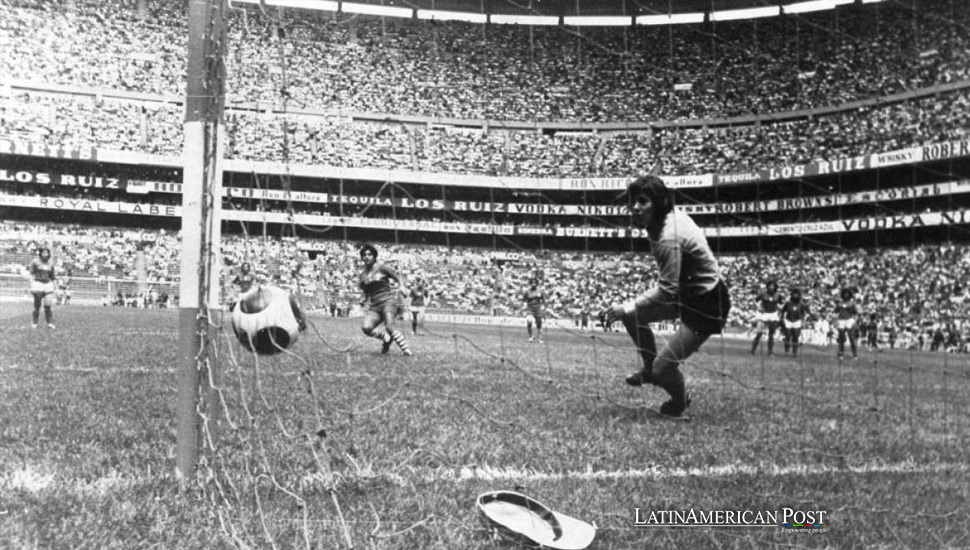Mexico’s Forgotten 1971 World Cup Pioneered Women’s Soccer Renascence

In 1971, Mexico hosted an unofficial women’s World Cup, drawing crowds of over 100,000 and showcasing the potential of women’s soccer long before its global acceptance. This forgotten chapter, now revived in a documentary, underscores Mexico’s early advocacy for gender equality in sports.
In the early 1970s, while much of the world remained indifferent or openly hostile to the idea of women’s soccer, Mexico emerged as an unlikely champion for female athletes. The 1971 unofficial women’s World Cup, primarily forgotten until recently, is a testament to Mexico’s pioneering role in challenging gender norms and promoting women’s sports. This event highlighted the potential of women’s soccer and set a precedent for future generations, sparking a slow but irreversible change in the perception and treatment of women in sports across Latin America and beyond.
A Tournament Forgotten by Time
In 1971, Mexico City became the epicenter of an extraordinary moment in sports history. The tournament, which saw teams from various countries compete, was met with enthusiasm and massive crowds, starkly contrasting to the situation in countries like England, where women’s soccer struggled for recognition and legitimacy. The English team, in particular, experienced a radical shift in perception, going from playing in near obscurity at home to being celebrated by thousands of fans abroad.
Carol Wilson, captain of the English team, recalls the surreal experience of arriving in Mexico to a reception befitting superstars. The warmth and support from the Mexican public were unprecedented, illustrating a profound appreciation for the sport regardless of the player’s gender. This reception was a morale booster for the athletes and a clear indication of Mexico’s progressive stance on women’s participation in soccer.
The Impact and Aftermath
The tournament’s success in Mexico demonstrated women’s soccer’s commercial viability and popularity. However, the fear that this popularity might threaten the male-dominated soccer establishment led to the event being marginalized and almost erased from history. The return to normalcy was harsh for the participants, especially for the English team, whose members faced sanctions and bans from the newly forming Women’s Soccer Association.
Despite these setbacks, the 1971 tournament in Mexico sowed the seeds for the gradual acceptance and growth of women’s soccer globally. It showcased what was possible when women were given equal opportunities to compete and be celebrated for their athletic prowess. This moment in history, though overshadowed by subsequent official tournaments and developments, remains a critical turning point in the fight for gender equality in sports.
Reviving the Legacy
The release of the documentary “Copa 71” serves as a tribute to the athletes who competed in the 1971 tournament and a reminder of Mexico’s early and significant contribution to women’s soccer. The film, featuring narratives from the players and archival footage, brings to light these pioneering women’s passion, challenges, and triumphs. It emphasizes the importance of recognizing and preserving their legacy, not just for history’s sake but as a source of inspiration for current and future generations of female athletes.
The documentary’s reception and the stories of the “Lost Lionesses” resonate deeply in today’s context, where women’s soccer enjoys increasing popularity and recognition. It underscores the ongoing struggle for equality in sports and the importance of acknowledging the contributions of those who paved the way.
Mexico’s Broader Influence in Latin America
Mexico’s role in hosting the 1971 Women’s World Cup also highlights the country’s influence in promoting gender equality in sports across Latin America. It serves as an example for other countries in the region, where cultural norms and societal expectations have often hindered the development of women’s sports. By embracing and celebrating female athletes, Mexico set a precedent that challenged traditional gender roles and opened doors for women in sports across the continent.
The legacy of the 1971 tournament extends beyond Mexico’s borders, inspiring movements and initiatives aimed at empowering women in sports throughout Latin America. From grassroots organizations to national leagues, the ripple effects of Mexico’s pioneering event continue to be felt, driving progress and fostering a more inclusive and equitable sporting environment.
A Beacon of Progress
The story of the unofficial 1971 Women’s World Cup in Mexico is more than just a forgotten chapter in sports history; it is a beacon of progress and a reminder of the challenges and triumphs women face in pursuing equality and recognition in soccer. As we celebrate the advancements in women’s sports, it is crucial to remember and honor the pioneers who, against all odds, demonstrated the power and potential of women in soccer.
Also read: Brazil’s Soccer Stars Shine, But Women’s Teams Struggle for Spotlight
Mexico’s early advocacy for women’s soccer challenged the status quo and laid the groundwork for the transformative changes that have since swept through sports worldwide. As we continue to push for greater equality and inclusion in all areas of life, the legacy of the 1971 tournament and the pioneering spirit of its participants will undoubtedly serve as a source of inspiration and motivation.




